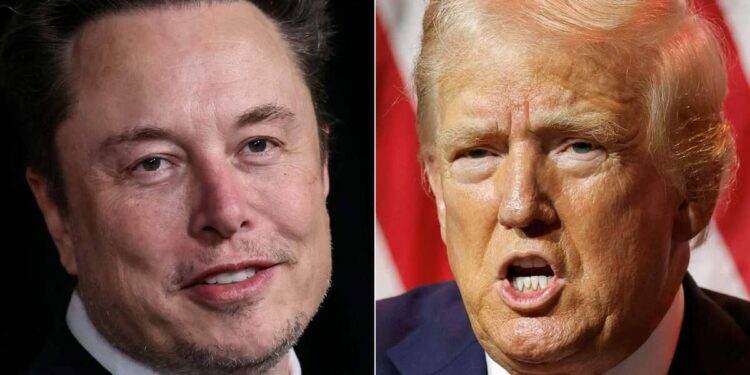Elon Musk is the latest, but probably the most powerful, tech giant to openly side with Donald Trump.
Common interests
Elon Musk has been fascinating and worrying for quite some time now. Some consider him the most influential man on the planet. This billionaire bought Twitter, which became X, to turn it into a particularly powerful propaganda tool. That was the most important goal.
Those who still frequent X have noticed a sharp change in the tone and content of the conversations that are exchanged there. The platform is riddled with misinformation, racism and hate speech.
Leveling down, justified by the fallacious argument of defending freedom of expression.
A year ago, Musk reactivated Donald Trump’s account. For the past two weeks, he has pledged millions to his campaign, before finally granting him a two-hour “conversation” on Monday night.
But what is it that attracts tech billionaires to Donald Trump’s entourage? In an interview with comedian Jon Stewart, another billionaire, Mark Cuban, summed it up best.
For Cuban, the equation is simple: Trump wants money, while the tech giants see themselves as members of a board of directors dictating their will to the president. Money talks, they say.
The shadow of the extreme right
That billionaires are trying to buy their way into power will not surprise anyone. It is regrettable, but unfortunately it is a common occurrence, both in the Democratic camp and in the Republican camp.
It is elsewhere that I find my greatest source of concern. In the West and in the United States, voices seek to convince us that the threat of the extreme right is exaggerated. As if we could envisage a soft or popular fascism. An acceptable extreme right is simply a figment of the imagination.
To fully grasp the threat posed by a Trump supported by a few billionaires (Elon Musk or Peter Thiel) who care little for the preservation of democracy, I invite these voices to compare him not to Hitler or Mussolini, but rather to the fascist-inspired populism of Juan Peron in Argentina (1946-1955).
What was the “Peron style” based on? Control of information, weakening of democratic institutions, blind faith in the leader, resort to demagogy and the promotion of exacerbated nationalism.
If you consider what the famous Project 2025 proposes (the State at the service of Trump), that Peter Thiel (who no longer believes in democracy) practically imposed the choice of JD Vance as running mate and that Elon Musk is putting a social network infested with extreme right-wing supporters at the service of the Republican candidate, we can predict the worst.
I wrote recently that to ensure he wins the election, Donald Trump must change his approach. Considering the above, one can seriously doubt that he will change his ways.
Notice to our readers – closing of the comments module
Please note that the comments module will not be accessible from August 12 to 25 inclusive. This is an exceptional and temporary situation.
Thank you for your understanding.
The Management



